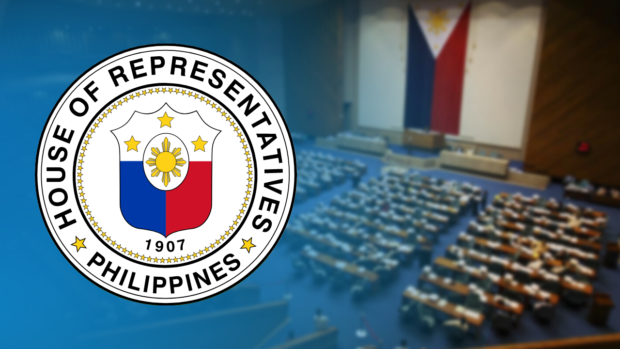
INQUIRER FILE PHOTO
MANILA, Philippines — For refusing to cooperate in the congressional investigation into the big spike in onion prices, three officials of cold storage operator Argo Trading Philippines Corp. were detained — albeit briefly for two of them — at the House of Representatives.
The two, Argo Trading president and general manager Efren Zoleta Jr. and legal counsel Jan Ryan Cruz, apparently got cold feet after snubbing the hearing last week and “voluntarily presented themselves” to House Sergeant at Arms Napoleon Taas on Monday afternoon, according to a statement from Quezon Rep. Mark Enverga.
The third official, Argo Trading operations manager John Patrick Sevilla, has been in detention in the House since March 7 when he and his two colleagues were cited in contempt by the committee for their alleged failure to submit the inventory of the onions stored in their facility in 2022. They were ordered to be detained for 10 days.
But since Zoleta and Cruz were a no-show during that committee hearing, Speaker Martin Romualdez had to issue an arrest order for them.
Enverga, who chairs the House food and agriculture panel conducting the investigation, issued the statement ahead of Tuesday’s deliberations on the appeal to lift the contempt order on the Argo executives.
Appeal, apology
During the discussion on the appeal, the House agriculture and food panel relented after finding the officials’ explanations to be satisfactory.
Cruz earlier wrote the House panel to appeal for the lifting of the contempt order and committed to submit the remaining documents.
The lawyer clarified that he had no intention to disregard the House committee’s orders or delay the proceedings of the investigation.
Zoleta and Sevilla also apologized to the committee and assured the panel that they would cooperate in the investigation.
According to a statement issued by the lower chamber, Sagip party list Rep. Rodante Marcoleta said he had no objection to the lifting of the contempt order as long as all the conditions imposed by the committee were fully satisfied.
“The data that they had initially filed for compliance is only for 2022. I understand that they are trying to get as far back as 2020, so that will be three years in a row, that we shall be able to analyze and study the data that will eventually help us hunt these economic predators,” he said.
He added that part of the Argo officials’ compliance was the submission of their monthly electric consumption data from 2020 up to 2022.
Confidentiality clause
The House panel had cited the three officials in contempt over their refusal to submit a list of clients who stored red onions in their facilities late last year.
Sevilla countered that Argo could not submit the name of their clients because of a confidentiality provision in its service agreement with clients.
He said he was given this advice by their lawyer, which he later identified as Cruz.
Sevilla eventually agreed to disclose the list of clients within an hour after being told that the subpoena issued by the House panel covered such records.
However, he submitted limited information, which prompted lawmakers to cite the Argo officials for contempt.
Fish spoilage
Still on cold storage, President Marcos on Tuesday called for the building of more of these facilities to store perishable goods and the construction of fish ports in 11 coastal provinces in the country to address postharvest losses.
During a sectoral meeting with the Department of Agriculture (DA), Bureau of Fisheries and Aquatic Resources (BFAR), Department of Environment and Natural
Resources, and other stakeholders, the President said putting up more cold storage facilities would also address the decline in fishery production and counter fish spoilage.
Fish ports rehab
“So we decided that one of the areas that was identified was the spoilage of the fish during handling from the fishing boat to the market, the spoilage is very large,” the President said in a video interview released by the Presidential Communications Office.
Mr. Marcos said “the solution to that is to build cold storage facilities” in fish ports.
He also said the construction of more fish ports was needed “to capacitate and empower fisherfolks towards resiliency.”
He also ordered the rehabilitation of 20 identified municipal fish ports that are considered traditional landing ports in the country.
According to BFAR, current fish spoilage is between 25 and 40 percent because of the shortage in postharvest equipment such as blast freezer and ice-making machines, as well as cold storage warehouses and fish landing sites.
Mr. Marcos said that if the Philippines would be able to lower the spoilage of the catch between 8 and 10 percent, the country would no longer depend on imports.